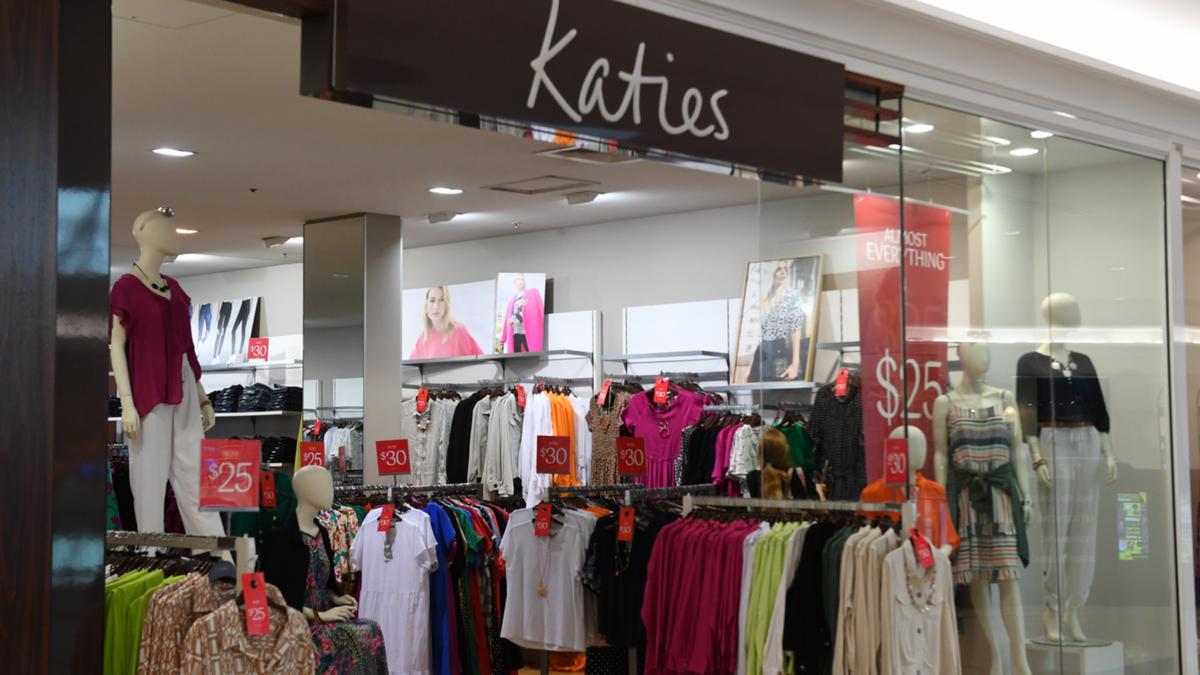[ad_1]
Katies was once a staple of the Australian fashion industry, but the brand will be lost to time as the remaining 80 stores close for good in January.
The closure is one of the levers being pulled in a delicate attempt to stabilize parent company Mosaic Brands, which recently entered voluntary administration owing creditors almost $250 million.
Launched in Australia in the mid-1950s, Katies is renowned for its range of stylish fashion offerings and has grown to more than 150 stores across the country.
However, experts say management has neither adapted to recent market conditions nor allowed itself to stand out from the other retailers in Mosaic’s stable.
“This has reduced customer loyalty and hindered the growth of the individual brand.”
Tan said Cathys also failed to stand out more widely in the crowded fashion market.
“There are other major competitors in the market which include Target, Kmart and Big W which offer a wide range of fashion options at competitive prices,” she said.
“Each of these brands had their own unique selling points, but they all aimed to appeal to budget shoppers looking for trendy yet affordable clothing.
“Fashion brands that are successful in today’s competitive market cultivate strong communities around their products.
“These brands maintain closer communication with customers, both in-store and online, allowing staff to gather valuable feedback and understand what resonates with their target market.”

The fall of Katies comes amid major developments with other brands under the Mosaic umbrella.
A total of 80 Millers, Rivers and Noni B stores will close in January, with the wide-ranging redundancies affecting around 480 staff.
The ax had already fallen on Rockmans, Autograph, W.Lane, Crossroads and BeMe in September in a move designed to simplify operations and cut costs.
Receivers and administrators KPMG, appointed to work alongside administrators FTI Consulting after Mosaic went into administration in October, said the decision to make further cuts was made after a review identified “loss-making” stores.
Tan described it as a “sad” time for the fashion industry, but believes Mosaic has grown its retail network too quickly and needs to streamline operations if it is to survive.
“They are facing challenges such as declining sales, increased competition and the impact of the COVID-19 pandemic on the retail industry,” Tan said.
Ultra fast fashion
Savvy online retailers and budget consumers have also changed the game for more traditional operations that either adapt or die.
“The rise of e-commerce has changed consumer shopping habits, resulting in reduced traffic in physical stores,” Tan said.
“Online shopping offers the convenience of browsing and shopping from home. Online retailers often have lower overhead costs, allowing them to offer more competitive prices than brick-and-mortar stores.
“Ultra-fast fashion brands like Temu and Shein have also entered the market with extremely competitive prices.
“More importantly, the COVID-19 pandemic has accelerated the shift to online shopping during the lockdown.”
KPMG said the cuts were not taken lightly and that they had “stabilized operations” at Mosaic ahead of a potential sale.
“Due to ongoing due diligence and discussions with interested parties, FTI Consulting has notified the parties that the deadline for binding offers has been extended to the end of December 2024,” KPMG said on Tuesday.
[ad_2]




